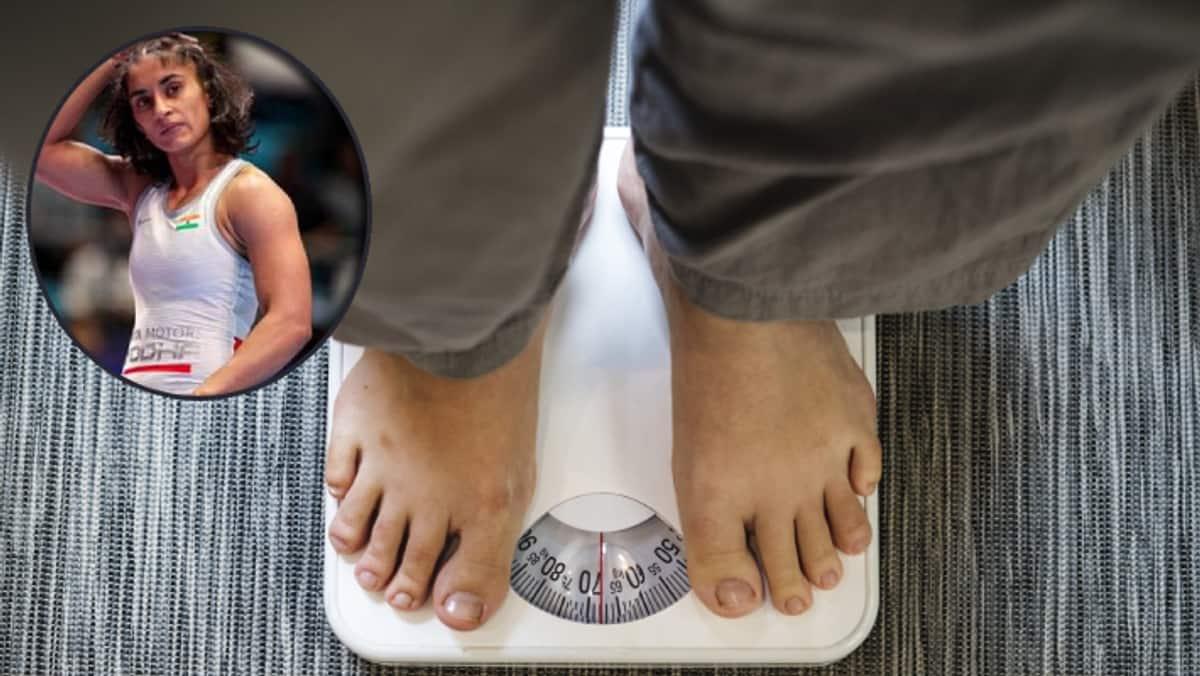
Vinesh Phogat Disqualified: Know What Is Water Weight Management In Athletes
For athletes in grappling sports (e.g., wrestling), managing water weight is particularly critical due to the weight class nature of these sports and the physical demands involved.
Here's a targeted approach for water weight management:
Pre-Competition Weight Management:
- Weight Class Strategy: Athletes often need to maintain specific weight for competition, which may involve temporarily losing water weight. This should be done carefully to avoid dehydration and negative performance impacts. Fluid Manipulation: Strategies like temporary fluid restriction or "cutting weight" should be done with caution. Common methods include reducing fluid intake a few days before weigh-in, but athletes should stay hydrated to avoid severe dehydration.
Hydration Protocol: Pre Weigh-In: Gradually rehydrate after weighing in to ensure optimal performance. Drink fluids with electrolytes and gradually increase intake to avoid gastrointestinal discomfort. During Training: Stay hydrated to maintain peak performance. Hydrate regularly with water and, if needed, sports drinks with electrolytes during intense or prolonged training sessions.
Monitoring Technique: Daily Weight Checks: Regularly monitor body weight to track fluid levels and make necessary adjustments. This helps in managing both pre-competition weight and general hydration. Urine Colour: Use urine colour as an indicator of hydration status. Aim for light yellow urine to ensure adequate hydration.
- Post Workout Rehydration: After intense training or competition, focus on replenishing fluids and electrolytes lost through sweat. Drink water and consume meals or snacks that include electrolytes and carbohydrates. Avoid Excessive Restriction: Post-competition, avoid extreme fluid restrictions or rapid weight changes that can adversely affect recovery and overall health.
Diet and Nutrition: Balanced Diet: Maintain a diet rich in fruits, vegetables, and whole grains to support overall hydration and electrolyte balance. Hydrating Foods: Incorporate foods with high water content (e.g., cucumbers, oranges) into your diet to assist with hydration.
Consultation and Planning: Professional Advice: Work with a sports nutritionist or dietitian who can tailor a hydration and weight management plan specific to the needs and the demands of the sport. Personalized Approach: Individual needs vary based on sweat rate, body size, and training intensity. Adjust hydration strategy accordingly.
In conclusion, effective water weight management for grappling athletes involves a balanced approach to hydration, careful weight management before competitions, and effective recovery practices to ensure peak performance and health.
(This article is written by Dr. Lohith U, Consultant – Surgical Gastroenterology Bariatric and GI Oncology, Manipal Hospital Sarjapur Road)
Legal Disclaimer:
MENAFN provides the
information “as is” without warranty of any kind. We do not accept
any responsibility or liability for the accuracy, content, images,
videos, licenses, completeness, legality, or reliability of the information
contained in this article. If you have any complaints or copyright
issues related to this article, kindly contact the provider above.

















Comments
No comment